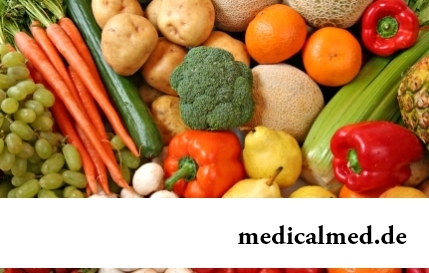





Syndrome of medicinal dependence
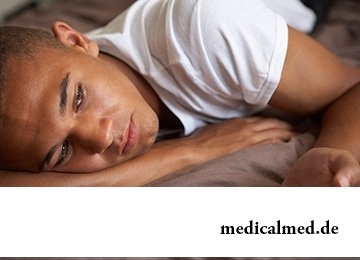 Repeated prolonged use of medicines can lead to the fact that at their cancellation at the person the state of health or health sharply worsens. Such state is called a syndrome of medicinal dependence.
Repeated prolonged use of medicines can lead to the fact that at their cancellation at the person the state of health or health sharply worsens. Such state is called a syndrome of medicinal dependence.
Often the syndrome arises at use of the psychotropic drugs which are most often connected with abstinence (opiates and psychostimulants), however medicinal dependence can arise also from many other medicines, for example, of glucocorticosteroids, and also from the hallucinogenic substances or organic solvents which are not applied to treatment.
The syndrome is defined by pathological need of the person for reception of such means for avoiding of discomfort, mental disturbances and abstinence – a state at which the patient has a hysterical fear of medicine cancellation.
It is possible to overcome medicinal dependence only sharp, in particular in cases of mental dependence, or gradual refusal of use of drugs, or their replacement by the additive means.
Types of medicinal dependence
In medicine distinguish two types of medicinal dependence – physical and psychological (mental). The first arises after cancellation of this or that substance or medicine leads the patient to a condition of abstinence, mental, vegetative and somatic or neurologic disorders.
Abstinence, in addition to cancellation of means, can be also caused by introduction of the antagonists of substance who caused physical dependence, her clinical picture completely depends on type, duration of use and doses of psychoactive agent.
Development of the second type of medicinal dependence – psychological, happens at states when drug withdrawal causes psychological or emotional discomfort. It is possible to distinguish it on an insuperable inclination of the patient to reception of this medicine turned into obsession.
Development of medicinal dependence
It is supposed that a basis for formation of psychological medicinal dependence is ability of psychotropic drugs to change psychological state of the person to the best.
The majority of such means, whether it be tranquilizers, narcotic analgetics, alcohol, hypnotic drugs and sedatives, psychostimulants or tranquilizers, exert a direct impact on perception, mood, thinking of the person, cause euphoria, defuse tensions, fear and alarm.
Such reaction of an organism at some people owing to the contributing genetic, psychological, social, biochemical and situational factors can create insuperable desire in repeated reception of psychotropic drugs, as results in medicinal dependence.
Extreme form of such imposed requirement is development of pathological desire to often use psychoactive connections for achievement of a condition of euphoria because of what afterwards such state turns into drug addiction or toxicomania.
In many cases psychological medicinal dependence arises at purpose of psychotropic drugs the patient having neurosis or with an alarming and hypochondriac warehouse of character. Such patients, getting into situations when drug withdrawal leads to negative affective reactions, often resort to independent reception of any psychotropic substances to eliminate negative effects of cancellation. Owing to similar actions on the uslovnoreflektorny mechanism at such persons medicinal dependence also develops.
Thus, it is possible to draw a conclusion that in many respects emergence of psychological dependence on medicines is connected with formation at a sick uslovnoreflektorny stereotype as after reception of such means he feels tranquility, the feeling of discomfort and alarm passes, there comes euphoria and an emotional and positive state.
Presumably in development of physical medicinal dependence, in addition to uslovnoreflektorny mechanisms, not the last role is played by those adaptive reactions of an organism which are connected with change in internals of sensitivity and the number of the receptors interacting with the accepted psychotropic substances.
Diagnosis and treatment of medicinal dependence
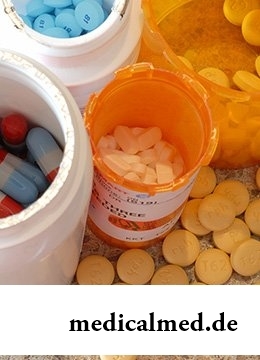 It is possible to distinguish medicinal dependence on steady thirst of the patient for drugs and their analogs, constant need of increase in a single dose when from only one thought of the admission of reception of means of people panics, at it hands shiver, the intolerance of bright light or loud sounds, a condition of alarm and the increased perspiration appears.
It is possible to distinguish medicinal dependence on steady thirst of the patient for drugs and their analogs, constant need of increase in a single dose when from only one thought of the admission of reception of means of people panics, at it hands shiver, the intolerance of bright light or loud sounds, a condition of alarm and the increased perspiration appears.
Having found out that at the patient dependence on administration of drug developed, the doctor defines its degree, and also learns, desire of the patient to get rid of this state is how strong. Strong and sincere desire of the patient plays a key role in treatment of medicinal dependence.
The full refusal of use of drug is the most important point of therapy, it is better to hospitalize all patient as such step will be able to provide strict observance of all recommendations of the attending physician. The family of the patient with medicinal dependence has to express understanding during rehabilitation and support him.
In general treatment of medicinal dependence is complex, it includes psychotherapy, clarification of an organism, prescription of medicines and physiotherapy exercises.
Medicinal dependence call a condition of the person at which it develops panic from only one thought of drug withdrawal. There is such dependence both on psychotropic drugs or glucocorticosteroids, and on the hallucinogenic substances which are not applied to treatment. Recognition and use at an early stage of adequate treatment are the key to the fact that fight against medicinal dependence will be effective.
The most high temperature of a body was recorded at Uilli Jones (USA) who came to hospital with a temperature of 46,5 °C.

Olive oil – the product capable to make a powerful contribution to health of the person if it includes it in the diet. Rich vitamin...
Section: Articles about health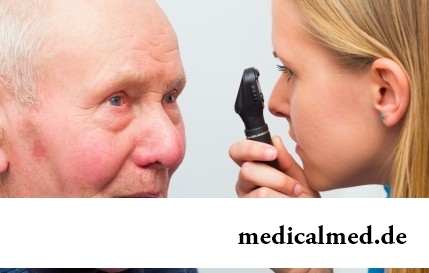
According to data of World Health Organization, the cataract is diagnosed almost for 7% of the population of Earth. The statistics of incidence is considered not full as at an initial stage the illness, as a rule, does not cause to the person of special inconveniences, and many having got sick...
Section: Articles about health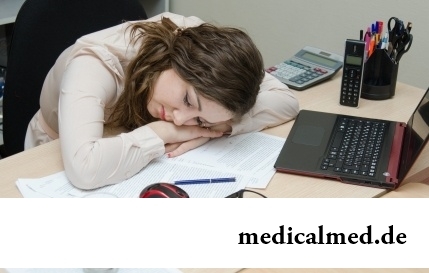
It is difficult to revaluate importance of kidneys for an organism. These bodies not only perform work on purification of blood of decomposition products and removal of excess liquid. They are responsible also for production of some hormones necessary for maintenance of a normality of a bone tissue, and also for a producing red blood cells – erythrocytes....
Section: Articles about health
No, probably, the person who would not have cold. Cold, cough, a headache – these symptoms are known to everyone. Peak to Prost...
Section: Articles about health
Summer in the heat. Many are going to spend vacation abroad. Travelers the tender seas, rest on beaches wait, for sightseeing, campaigns on natural and cultural reserves. But, unfortunately, on vacation also problems about health can wait for us...
Section: Articles about health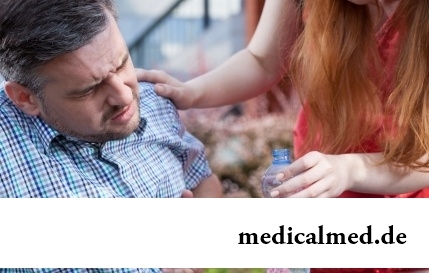
Each of us faces from time to time that other people need the immediate help. We react to it differently: one at once call doctors and police, others rush to victims and try to save them independently. Some pass by at all … Certainly, desire to help the neighbor who got into trouble, quite naturally for any decent person. However not everyone understands that to work in a similar situation, being guided by exclusively good...
Section: Articles about health
You are office worker, the driver, the fan of winter sports or do not think of life without bicycle? You conduct a slow-moving image жизн...
Section: Articles about health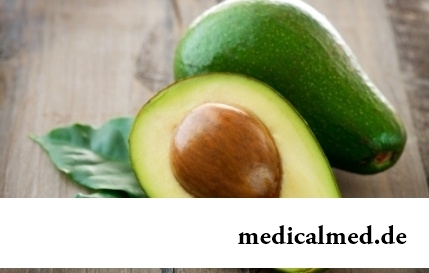
Life does not indulge the modern woman special emotional comfort and carelessness. The fatigue, troubles at work, misunderstanding in a family and various illnesses immediately affect a condition of hair and skin. And to look safe and attractive so хоч...
Section: Articles about health
Shops of household appliances offer us the huge choice of various devices for the house. Whether there are among this abundance devices which not only facilitate house work, but also help to keep health of the person? Of course, and we will tell about them today....
Section: Articles about health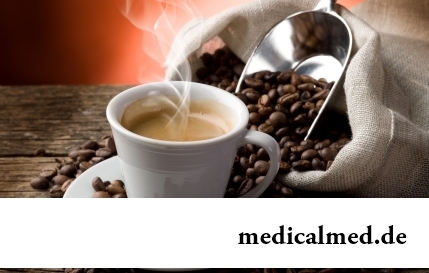
The dietology, as well as other sciences, does not stand still. Food stuffs are exposed to comprehensive study, and scientists receive new and...
Section: Articles about health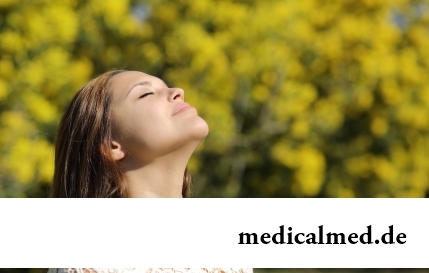
The phenomenon of the panic attack is known long ago, but the reasons of its emergence still are up to the end not found out. It is established that more than 30% of people at least once in life become the victims of very unpleasant phenomenon: without everyones on that the reasons they have a feeling of horror, with...
Section: Articles about health
The popular expression "run from a heart attack" became the motto of the people supporting active lifestyle. Moreover, run became a peculiar fashionable tendency: sales of racetracks and the accompanying goods for run are at permanently high level. Whether really it is possible for one and all people and it is necessary to run to receive the portion of health, a charge of cheerfulness and good mood?...
Section: Articles about health
All the known slogan "Protect Men!" arose not from scratch. In a sense, the nature created representatives of strong...
Section: Articles about health
Good appetite was always considered as a sign of good health. The correct operation of the mechanism which is responsible for the need for nutrients and receiving pleasure from process of its satisfaction demonstrates that the organism functions without special from...
Section: Articles about health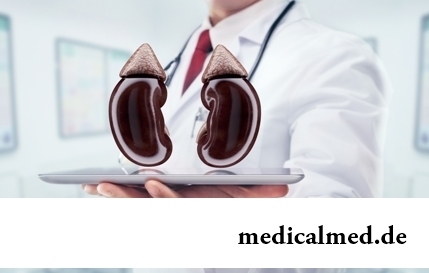
Kidneys perform the most important function of clarification of blood from those products of metabolic processes which cannot be used by an organism for obtaining energy and construction of new cells. With the urine produced by kidneys from a body of the person the bulk of the toxins getting to it with food and water is removed. Normal functioning of kidneys provides removal from an organism of excess liquid and maintenance of optimum ionic balance. At emergence of failures in work of secretory system...
Section: Articles about health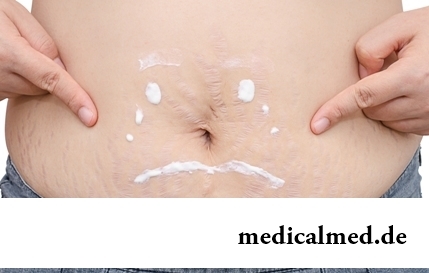
Striya (extension) are the defects of skin having an appearance of direct or wavy strips from 1 to 10 cm long and 1-5 mm wide. In the majority with...
Section: Articles about health
Scientists always aimed to offer fundamental explanations for medical problems. Their theories formed the basis of modern methods of treatment of the hardest pathologies and helped to save a set of lives. However stories are known also such theoretical constructions, following to...
Section: Articles about health
During foot walks blood moves on vessels more actively and one and all bodies are supplied with a large amount of oxygen. It affects the state of health of the person very positively....
Section: Slideshow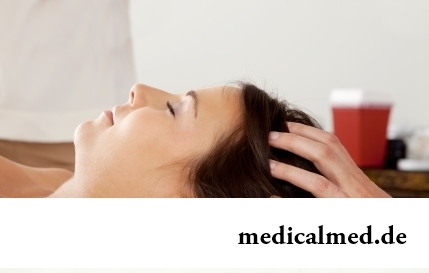
On the head of the person about one million hair follicles, or as they are called still, hair bulbs are located. At the moment he is born...
Section: Articles about health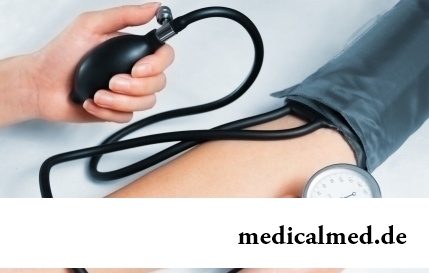
Stroke (acute disorder of cerebral circulation) – one of the most widespread neurologic diseases. Annually in the world more than 6 million people die of this illness. From the survived patients about 80% become disabled people, and nearly a thirds from them впо...
Section: Articles about health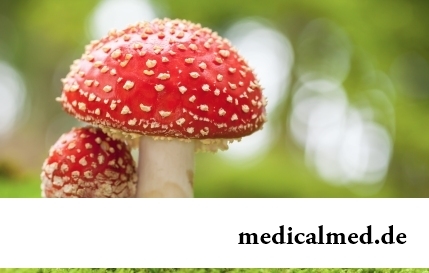
Mushrooms - the surprising inhabitants of our planet having a set of wonderful qualities. Thanks to one of them, a mold mushroom of Penicillium notatum, the first natural antibiotic - penicillin was received nearly 80 years ago. The mankind is obliged to this opening by millions of saved lives....
Section: Articles about health
Use of medicinal plants in therapy is urgent today, more than ever. The drugs made of curative herbs cannot on...
Section: Articles about health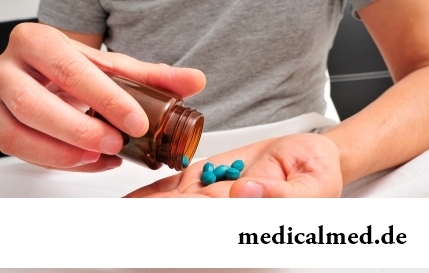
We present to yours the TOP of the medicamentous means exerting the stimulating impact on a potentiality, i.e. on ability of the man to commission of sexual intercourse. At once it is necessary to tell that not always disturbances of erectile function can be eliminated with reception of t...
Section: Articles about health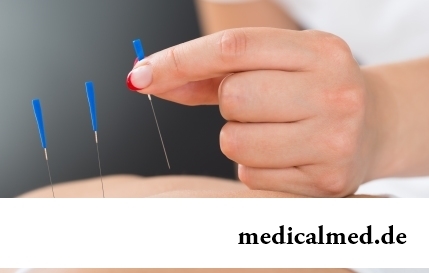
The technique of acupuncture (acupuncture) is used in the medical purposes more than three and a half millennia. It is eurysynusic and recognized as official medicine in the majority of the developed countries of the world. Influence by fine needles on so-called points of acupuncture contributes to normalization of a metabolism and hormonal background, activates protective forces of an organism, has anesthetic and antiinflammatory effect, stabilizes a condition of mentality....
Section: Articles about health
About 20% of the population of our planet have a hypertension (permanent increase in arterial pressure). This disease negatively narrations...
Section: Articles about health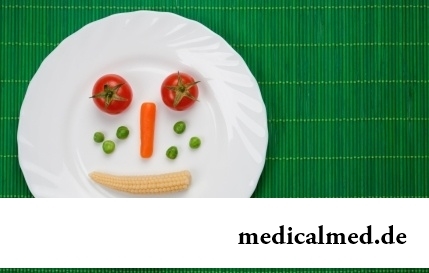
About influence of fasting days on an organism it is told much – both about advantages, and about shortcomings. It is considered that fasting day in the form of a short-term monodiet is useful, promoting effective removal of slags from an organism whereas irregular, it is excessive п...
Section: Articles about health
